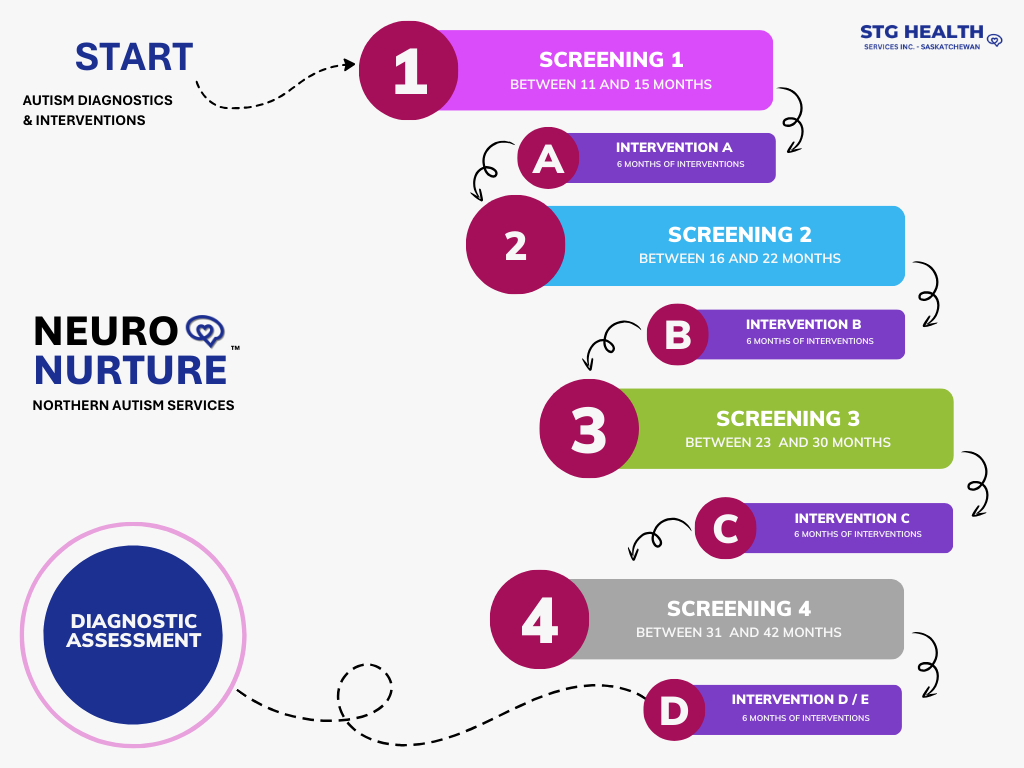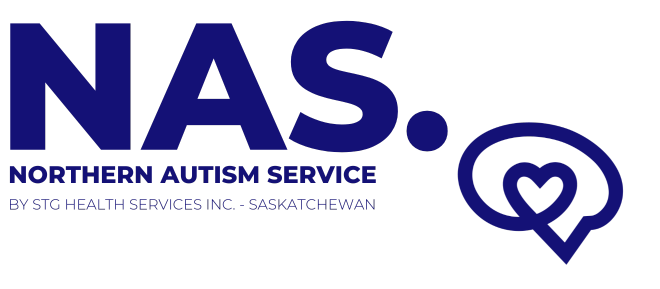
Unveiling the Stages of Autism Screening at STG Health Services Inc.
Introduction
Autism Spectrum Disorder (ASD) is a complex neurodevelopmental disorder that affects millions of individuals worldwide. Early detection and intervention are crucial for individuals with autism to receive the support they need. At STG Health Services Inc., we specialize in providing comprehensive autism screening and diagnostic services to ensure that children receive timely and effective care. In this blog post, we’ll explore the four stages of autism screening at STG Health Services Inc., thoroughly understanding when and how our professionals assess children for potential signs of autism.
Stage 1: Between 11 and 15 Months
The first stage of autism screening at STG Health Services Inc. typically occurs between 11 and 15 months of age. During this period, healthcare professionals, such as pediatricians or family doctors, conduct routine developmental screenings to assess a child’s progress, including communication, social interactions, and motor skills.
In-Person Screening
These screenings are conducted in person with a clinician while the parent or guardian is present. Our providers observe the child’s response to their name, eye contact, and gestures like pointing. They also evaluate early communication skills, such as babbling and the use of gestures to express needs. While these assessments may not exclusively determine autism, they serve as an initial indicator for further evaluation. Our professionals use tailored screening tools specifically designed for this age group.
Stage 2: Between 16 and 22 Months
The second stage of autism screening at STG Health Services Inc. usually takes place between 16 and 22 months of age. During this period, our professionals, including pediatricians and early intervention specialists, perform a more comprehensive evaluation. They carefully observe the child’s development, paying close attention to communication, social interactions, and play skills.
In-Person Screening
These screenings are done in person, with the clinician and parent present. Our providers use standardized screening tools to assess the child’s behaviour and identify potential red flags. Additionally, our professionals may use specific tools to evaluate social communication skills and identify potential signs of autism in this age group.
Stage 3: Between 23 and 30 Months
The third stage of autism screening at STG Health Services Inc. typically occurs between 23 and 30 months of age. At this stage, our professionals, including developmental pediatricians and child psychologists, conduct a more detailed evaluation of the child’s social communication skills, behaviour patterns, and overall development.
In-Person Screening
These assessments are performed in person with the clinician and parent present. Our experts continue to use various tools to provide a standardized framework for evaluating the child’s behaviour, communication, and social interactions at this stage. This thorough assessment helps identify areas that may need further attention and intervention.
Stage 4: Between 31 Months and 60 Months
The fourth stage of autism screening at STG Health Services Inc. occurs between 31 months and 60 months of age. At this stage, our professionals continue to evaluate the child’s development and behaviour. During this phase, we utilize specific tools designed for preschool-aged children.
In-Person Screening
These screenings are conducted in person with the clinician and parent present. The tools used are designed to assess the social communication skills of preschool-aged children. By utilizing these tools, our professionals can identify potential signs of autism and further evaluate the child’s strengths and challenges in social interactions, communication, and behaviour.
Diagnostic Stage
The diagnostic stage is the final step in the autism screening process at STG Health Services Inc. If concerns persist after the previous stages, our professionals conduct a comprehensive evaluation to determine whether the child meets the criteria for an autism spectrum disorder (ASD) diagnosis.
In-Person Diagnostic Evaluation
This comprehensive evaluation is conducted in person with the clinician and parent present. During this stage, our experts consider various factors, including the child’s developmental history, family history, and results from previous screenings. We assess the child’s behaviour across different settings and may involve additional specialists, such as speech-language pathologists or occupational therapists, to gain a holistic understanding of the child’s needs. For a more detailed assessment, our professionals may administer additional diagnostic tools to provide a comprehensive analysis of the child’s behaviour, communication, and social interactions, helping to confirm an autism spectrum disorder diagnosis.
Conclusion
At STG Health Services Inc., autism screening occurs in four distinct stages, each playing a vital role in identifying potential signs of autism spectrum disorder. By detecting these signs early, our professionals can provide timely interventions and support, significantly improving the quality of life for individuals with autism and their families. Our licensed organization utilizes specialized tools in each stage, ensuring a thorough and accurate assessment process. If you have concerns about your child’s development, consult with our healthcare professionals who can guide you through the screening process and provide appropriate support and resources.








